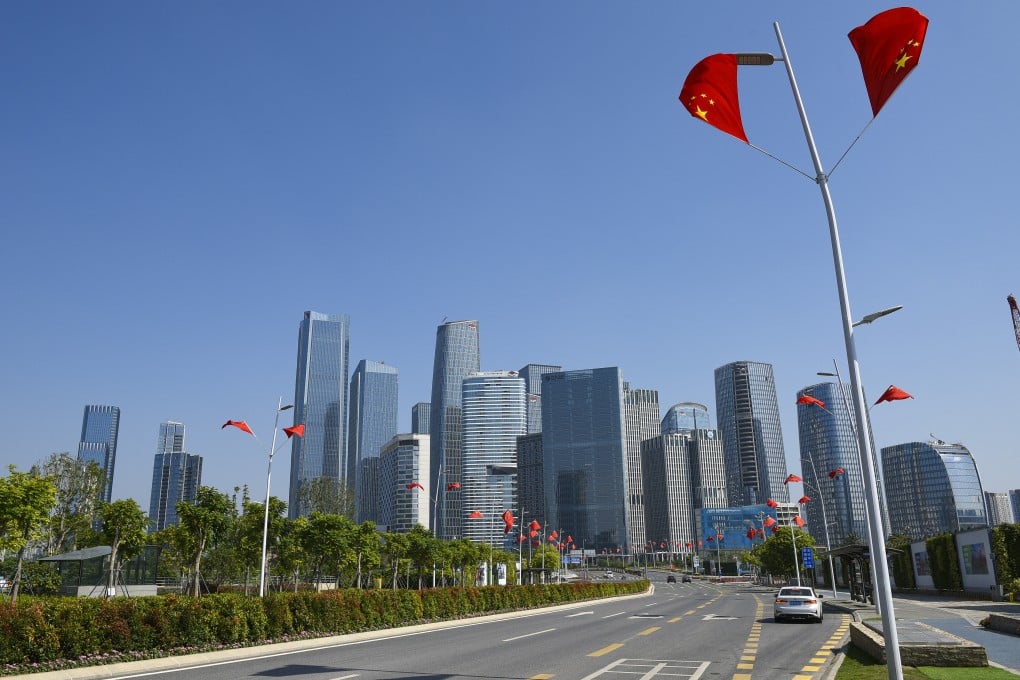Hong Kong firms show increased interest in Qianhai office space, JLL says
- Hong Kong firms have shown increased interest in Qianhai, the economic zone neighbouring the city
- Insurance firms, family offices and private banks have accelerated moves to enter Shenzhen to tap opportunities in the region

Southern China’s tech hub Shenzhen has seen increased demand for office space in the Qianhai special zone from Hong Kong companies, particularly the insurance industry and family offices, according to real estate firm JLL.
Hong Kong firms have shown a special interest in Qianhai, the economic zone neighbouring the city, and they have moved from initial investigations to taking action since the reopening of the Hong Kong-Shenzhen border earlier this year, Alfred Li, head of office leasing advisory at JLL Shenzhen, said in a media briefing on Thursday.
“One of the most notable industries is Hong Kong’s insurance sector, which has shown keen interest in moving into Shenzhen as a foothold for further expansion in other parts of the Greater Bay Area, such as Guangzhou and Foshan,” Li said.
Qianhai was their preferred choice of destination in Shenzhen due to its proximity to Hong Kong and the advantages in terms of the costs of office space and hiring, on top of the favourable policies offered by the district to attract businesses.
Family offices and private banks from Hong Kong have also accelerated moves to enter Shenzhen to tap opportunities in the region, Li added.